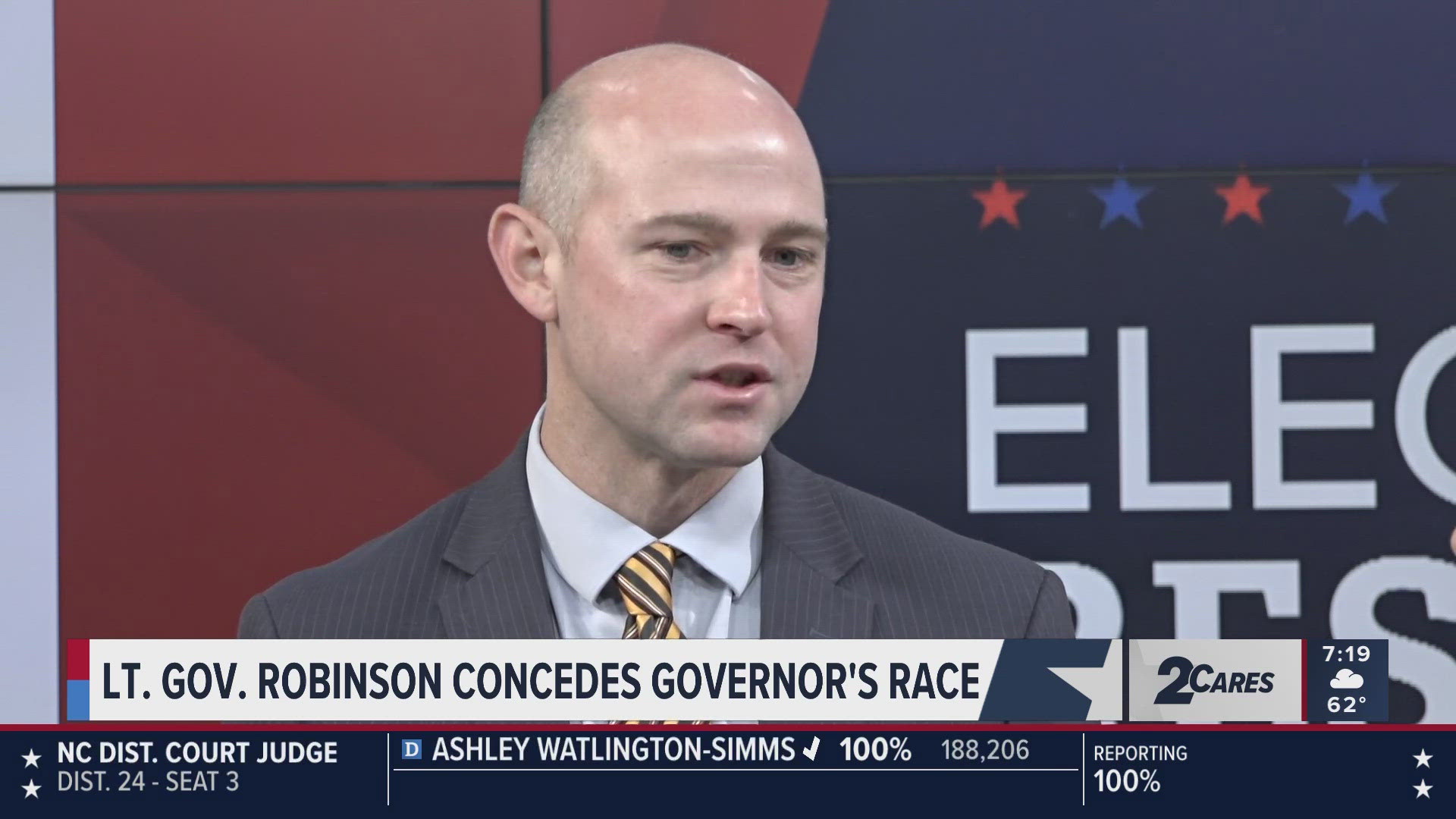GREENSBORO, N.C. — North Carolina's House of Representatives and Senate appear poised to remain republican-controlled, based on unofficial results of the 2024 elections, but projections suggest republicans will lose their 'supermajority' in the House, thus weakening their influence under an expected democrat-controlled head of state.
Losing the 'supermajority' means republicans, alone, cannot override a governor's veto -- which requires a three-fifths majority of votes in both chambers.
With Attorney General Josh Stein, a democrat, the projected governor-elect, he and a republican legislature could be at odds over key measures dividing NC voters -- the budget, school choice and reproductive rights.
Every two years in NC, all 120 of the House (70) and Senate (50) seats are up for re-election.
The NC Board of Elections, with 100% of precincts reporting and 99% of all ballots tabulated in most races, projects democrats have flipped (taken control) of three republican-held seats -- D-32, D-98 and D-24. That said, D-32 appears to have a tight-enough margin for a recount request, with republican incumbent Frank Sossamon trailing democrat Bryan Cohn by fewer than 200 votes as of 3 p.m. Wednesday.
Republicans appear to have flipped two House seats, as well -- D-35 and D-73.
Democrat-elect Josh Stein released a statement about the expected supermajority change, writing:
"Yesterday (Tuesday), North Carolinians sent a clear message that they believe we will go further when we go together, not as Democrats, Republicans or Independents, but as North Carolinians. The issues facing our state – rebuilding western North Carolina, creating good jobs, strengthening public schools, ensuring safe neighborhoods, and protecting personal freedoms – are not partisan issues; they are North Carolina issues. To build a brighter future for everyone in our state, we must come together across our differences and get to work. I’m ready to go.”
Elon Poll director Jason Husser told the Good Morning Show's Meghann Mollerus he expects current House and Senate republicans will attempt to pass key pieces of legislation before January, when the new General Assembly will take its oath. If House projections hold, after the statewide canvass, any future legislation would require at least some democrat support for an override.
Husser said, "Republicans losing the supermajority in the General Assembly means that Josh Stein will be able to do more than simply slow down legislation. He will be able to effectively block many types of legislation. That means Republican leadership will need to give him a real voice in the legislative drafting process or risk their efforts stalling out. In turn, many types of major policy changes in North Carolina will need to be bipartisan."
Senate Leader Phil Berger (R-Guilford, Rockingham) released a statement, reading in part:
"I can confidently say Republicans will retain a supermajority in the Senate and will hold a strong majority in the House. I’m thankful for the men and women who put their names forward and ran for office. Senate Republicans had an incredible slate of candidates and they’re going to represent their constituents well. Congratulations are also in order for House Speaker Tim Moore and Rules Chairman Destin Hall on their successes tonight.”
Longtime current House Speaker Tim Moore (R-Cleveland, Rutherford) did not seek re-election, as he ran for -- and is projected to win -- U.S. House District 14 in Congress. It is unclear who will run for the speakership in the incoming General Assembly.

